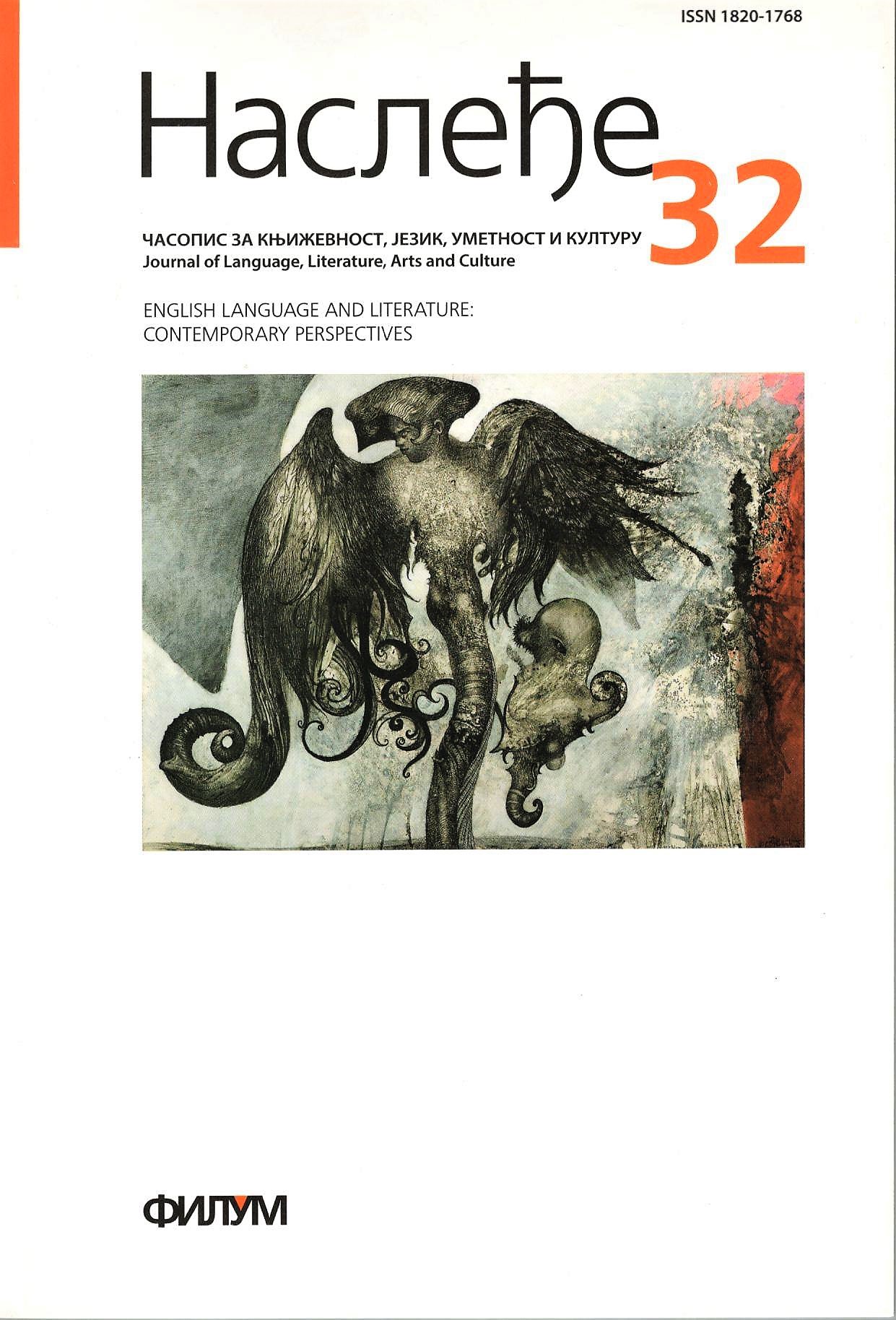“THERE WAS NO BACKGROUND MUSIC”
HOME AND ADJUSTMENT IN NADJA TESICH’S TO DIE IN CHICAGO
Keywords:
Nadja Tesich, To Die in Chicago, diasporic writing by women, post-Yugoslav writing, adjustment, in-betweenness as hybrid homeAbstract
Written in the language of the host country as a way of selftranslating and conveying multiple connections within transnational contexts of migration and diaspora, contemporary narratives by women authors from the former Yugoslavia, who have resided and published their works in the United States, have received insufficient critical and scholarly attention. In order to contribute to a new and developing field of research on migrant (autobiographical) literature that voices East European and (post-)Yugoslav women in diaspora, this paper offers a contextual reading of To Die in Chicago, a literary memoir by Nadja Tesich, a Serbian-American author whose works abound in references to the narrator’s mediating position between the homeland and hostland spaces of her “third geography”. Anchored in the narrator’s matrilineage and the primary mother-daughter bond, the memoir tackles the issue of persistent patriarchal values in a familial and wider immigrant community while problematizing the notion of home and adjustment to living in the 1950s America. Dealing with certain aspects of immigrant pain and otherness, the paper briefly examines the narrator’s trajectory from the narrow space of the port of entry to her inevitable internalization of hybrid spaces of in-betweenness.
References
Bijelić 2014: T. Bijelić, Transitional Othering of (M)Other: Disrupted Motherlines in Post-Yugoslav Prose by Women, in H. Basshir and S. Roye (eds.), Experiencing Otherness: Multidisciplinary Perspectives, Oxford: Inter-Disciplinary Press, 35-45.
Boyd M. & Grieco E. Women and Migration: Incorporating Gender into International Migration Theory, <http://www.migrationinformation.org/issue_mar03.cfm>. 01. 03. 2003.
Hron 2009: M. Hron, Translating Pain: Immigrant Suffering in Literature and Culture, Toronto: University of Toronto Press.
Nicolaescu 2014: M. Nicolaescu, Introduction, in M. D. Alexandru, M. Nicolaescu, and H. Smith (eds.), Between History and Personal Narrative. East European Women’s Stories of Migration in the New Millennium. Contributions to Transnational Feminism, Zurich: Lit Verlag.
Parker & Young 2013: A. Parker and S. Young, Transnationalism and Resistance: Experience and Experiment in Women’s Writing, Amsterdam – New York: Rodopi.
Seyhan 2001: A. Seyhan, Writing Outside the Nation, Princeton and Oxford: Princeton University Press.
Stefanidou 2002: A. Stafanidou, Creating a “Third Home” in Diaspora: Reeding Meena Alexander and Miranda Panaretou Cambanis, in D. Marçais, M. Niemeyer, B. Vincent, and C. Waegner (eds.), Literature on the Move:
Comparing Diasporic Ethnicities in Europe and the Americas, Heidelberg: Universitätsverlag, 225-235.
Tesich 2010: N. Tesich, To Die in Chicago, New York: iUniverse, Inc.






